The word of him
who has
the seven spirits of God and seven stars
❤️
https://jewishunpacked.com/how-to-celebrate-rosh-hashanah/
'We are coming up to the Feast of Trumpets on Sunday evening...
Israelis are wishing each other "happy holidays" and getting ready to eat lots of sweet food, and hear the sound of the shofar.
It's a time to look back and take stock,
to remember our covenant with God and
prepare our hearts for the high holidays.
Why not spend time this weekend thinking back over your own walk with God, and how it all started... and praying into all that's to come!"
One of the “appointed feasts of the LORD”
given to Israel in the Hebrew Bible (Old Testament)
is known today as Rosh Hashanah, literally “Head of the Year.”
We read about Rosh Hashanah in the Torah,
the Jewish Law found in the first five books of the Hebrew Bible.
"And the LORD spoke to Moses, saying, ‘Speak to the people of Israel, saying,
In the seventh month,
on the first day of the month, you shall observe a day of solemn rest,
a memorial proclaimed with blast of trumpets, a holy convocation. You shall not do any ordinary work,
and you shall present a food offering to the LORD’”
(Leviticus 23:23–25).
Rosh Hashanah, or the Jewish New Year,
is also known as Yom Teruah
or the Day of Trumpets.
The word teruah means “to shout or make a noise,” so this holiday is marked by the blowing of the shofar or ram’s horn in Jewish synagogues around the world. Rosh Hashanah falls on the first day of the Hebrew month of Tishri on the Jewish calendar, which usually corresponds to September or October. It always falls on the seventh new moon of the Jewish year.
After the destruction of the Jewish
temple in Jerusalem in AD 70,
even though this feast day falls on the
seventh month of the Jewish religious calendar,
it began to be called Rosh Hashanah
and became the beginning of the Jewish civil calendar.
Rosh Hashanah begins a ten-day period
leading up to
the holiest day of the Jewish calendar, Yom Kippur,
the Day of Atonement.
These ten days are called the yomim nora’im or
Days of Awe in modern Judaism.
The sounding of the shofar on Rosh Hashanah is a wake-up blast and a sobering reminder that the time is near for
the Day of Atonement.
It is a call to teshuvah, which is
repentance
and turning back to the LORD.
These ten days are ones of
great introspection,
heart-searching and self-examination.
The sound of the shofar for the Jew was, and still continues to be, a call to examine one’s life, to make amends with all those one may have wronged in the previous year, and to ask forgiveness for any vows one may have broken.
So the primary theme of Rosh Hashanah is one of repentance.
During Rosh Hashanah a common greeting/blessing is “May your name be inscribed”—a wish for one’s name to be written in the book of life. Jewish people enjoy sweets on Rosh Hashanah:
treats made with apples, honey, raisins, figs, and pomegranates.
Eating sweet things symbolizes the desire for a “sweet” year;
also included is the idea that the enjoyment of sweet things can help counter the sorrow associated with repentance.
In the eating of pomegranates, some Rosh Hashanah celebrants express the wish that their good deeds
will be as numerous as the seeds of the pomegranate.
Others eat portions of the head of a fish or a sheep,
symbolizing the desire to be “the head, not the tail”
(see Deuteronomy 28:13).
According to rabbinic tradition,
on Rosh Hashanah the
destiny of the righteous are sealed.
The righteous are written into the Book of Life,
These are given the ten days until Yom Kippur to exercise repentance and self-examination and then seal their fate. Then, on the Day of Atonement, everyone has his or her name inscribed into one of the two books.
Like all of the Lord’s appointed days in the Hebrew Bible,
Rosh Hashanah
points Christians to an even greater reality.
If you've placed your faith in the
Jewish Messiah, Jesus,
you appreciate the true meaning of
the call to repentance and of
turning our hearts toward God of Israel.
God's Word, the logos, warns of the Day of Judgment,
which is yet to come,
(Revelation 20:15).
For those who have placed their
trust in the atoning work of Jesus
through His life, death, burial, and resurrection
(2 Corinthians 5:21),
their names are already written into the Lamb’s Book of Life.
And now, even we believers in Jesus listen for that trumpet call,
“For the Lord himself will descend from heaven with a cry of command,
with the voice of an archangel,
and with the sound of the trumpet of God.
(1 Thessalonians 4:16–18).
A parallel reference is
1 Corinthians 15:51-53,
This is the same "trumpet of God" mentioned in 1 Thessalonians 4:16.
Paul further states in 1 Corinthians 15:51 that God will also change believers who are still living at the time into spirit.
So the return of Jesus Christ
and the resurrection of the saints occur in the same time period.
What is the significance of the trumpet of which Paul wrote?
The book of Revelation tells of seven trumpets sounded by seven angelic beings at the end of the age
(the first six coming in chapters 8-9).
The drama builds through each event announced by a trumpet blast
until the seventh and final angel sounds in Revelation 11.
His announcement is the finale, the last and greatest event:
The return of Jesus Christ
to inaugurate the Kingdom of God
on earth.
"Then the seventh angel blew his trumpet, and there were loud voices in heaven, saying,
'The kingdom of the world has become the kingdom of our Lord and of his Christ, and he shall reign forever and ever!'"
(Revelation 11:15)
This trumpet announces the coming of divine wrath
and the time of rewarding God's servants
(Revelation 11:18).
And combined with the other verses, it's clear that Jesus descends at the blowing of this seventh trumpet--
and that this is when the saints are caught up to Him-
-whether that is a spiritual or physical resurrections isn't clear-
When does this occur in the timeline of end-time events?
In a prophecy Jesus gave,
He referred to a
desecration in Jerusalem--
the abomination of desolation--
to come before the Great Tribulation
(Matthew 24:15-22).
(Daniel 12:11-13),
Jesus continued in Matthew 24:29:
"Immediately after the tribulation of those days the sun will be darkened,
and the moon will not give its light; the stars will fall from heaven,
and the powers of the heavens will be shaken."
He said that all nations on earth would
see the sign of His coming and would mourn.
Then He stated that they would
see Him coming with power and glory and that
He would send His angels to gather
His resurrected followers with a great sound of a trumpet
(Matthew 24:30-31).
Compare this with Revelation 6,
where we find a time of terrible final martyrdom
(Revelation 6:9-11).
This is followed by the heavenly signs Jesus was referring to
and the people of the earth lamenting
(Revelation 6:12-17).
Notice the conclusion of the lament:
"For the great day of His wrath has come, and who is able to stand?"
This corresponds to Joel 2:31,
where we are told that
"the sun shall be turned into darkness, and the moon into blood,
before the coming of the great and awesome day of the Lord."
That means that, in the book of Revelation,
the trumpets blown after the heavenly signs
represent the time of the Day of the Lord.
-The seventh trumpet-
comes at the end of this year-long Day of the Lord--
at the end of the 3 1⁄2-year period of end-time calamity.
The dead in Christ are raised and living believers are changed and made immortal at this point in time. They cannot have been taken up into glory before the tribulation period. Scripture doesn't allow for a rapture of the saints to heaven for an interim of several years!
Whether this is a physical
or spiritual resurrections
is yet to be seen.
Revelation
Will be a time of continuing unveiling,
increasing revelation
that better aligns with the book as it unfolds in real-time
-Protection for the saints-
We see that believers aren't taken off the earth during the Great Tribulation. But God will protect believers during this time of severe distress. The most specific reference to the protection that God promises for His people at the end of the age is in Revelation 12.
Revelation 12:14 says,
"But the woman was given two wings of a great eagle,
that she might fly into the wilderness to her place,
where she is nourished for a time and times and half a time,
from the presence of the serpent."
The times here denote years—one (time) plus two (times)
plus one half (half a time), equaling 3 1⁄2 years,
the period of the Great Tribulation and Day of the Lord.
And note that the protection is not in heaven but in the wilderness, or the desert as it's often translated. It's on the earth, not in heaven.
The context tells us that at least part of God's people will suffer persecution while God protects the rest of the faithful: "And the dragon was enraged with the woman, and he went to make war with the rest of her offspring, who keep the commandments of God and have the testimony of Jesus Christ" (Revelation 12:17).
It is possible that the result of this persecution will be martyrdom.
The Bible records many ways by which
God protected His people in the past,
but does not reveal specifically how, where or when--
or even all of the "who"—He will protect in the end.
However, we can have confidence that
He will reveal
what we need to know at
the essential time.
In the meantime, our focus must be on the spiritual preparation
for Christ's return and the establishment of the Kingdom
(Matthew 24:38-51).
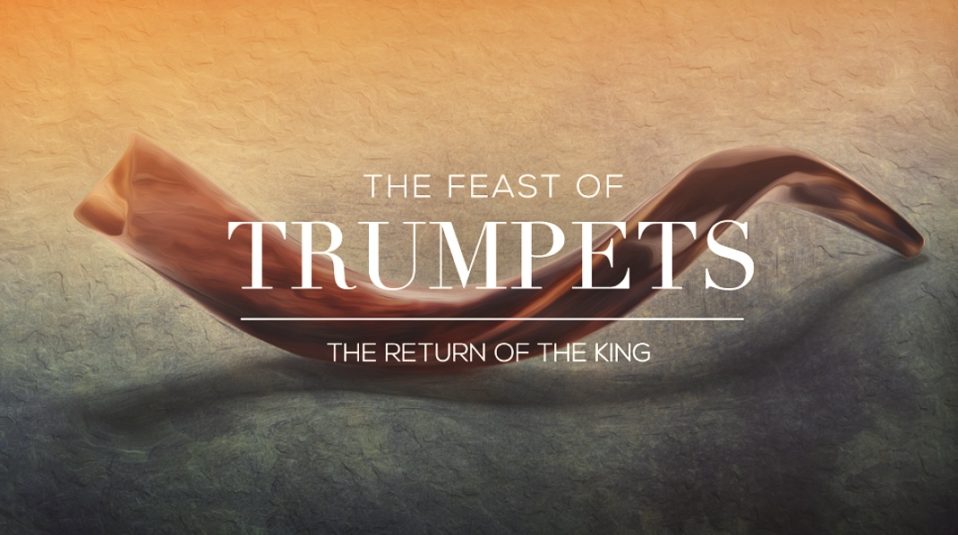

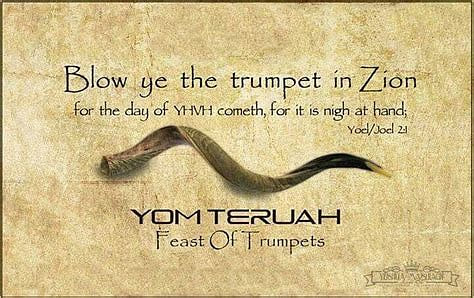

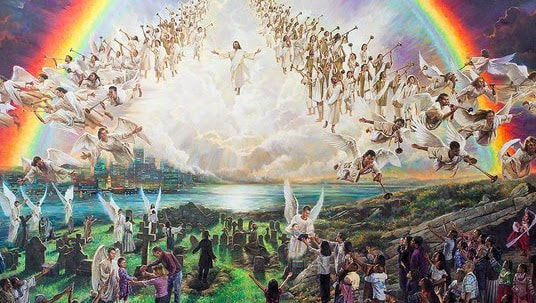
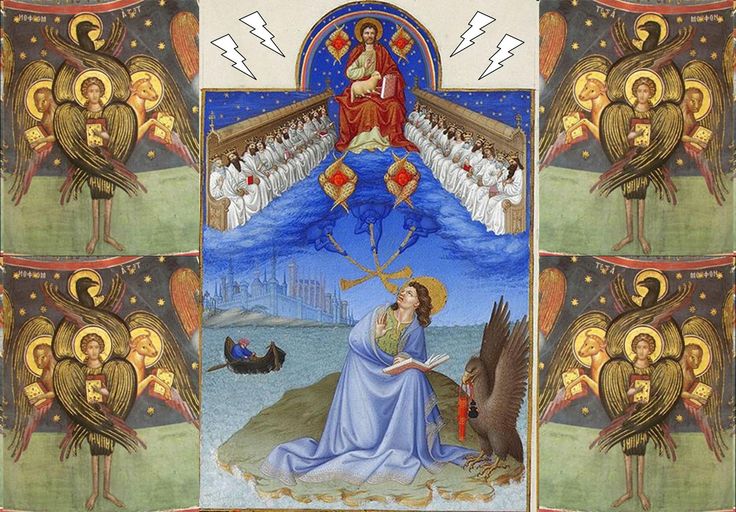
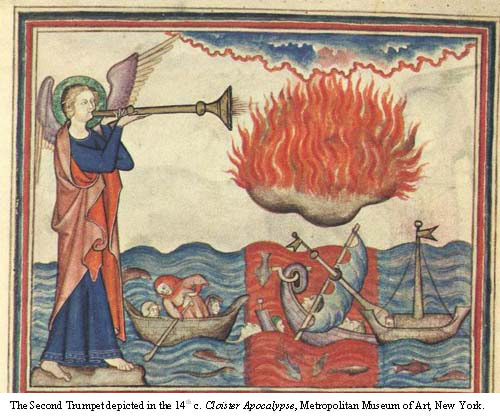
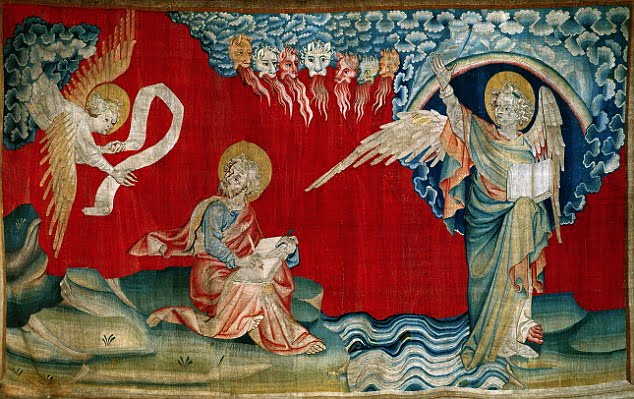
 RSS Feed
RSS Feed





















































